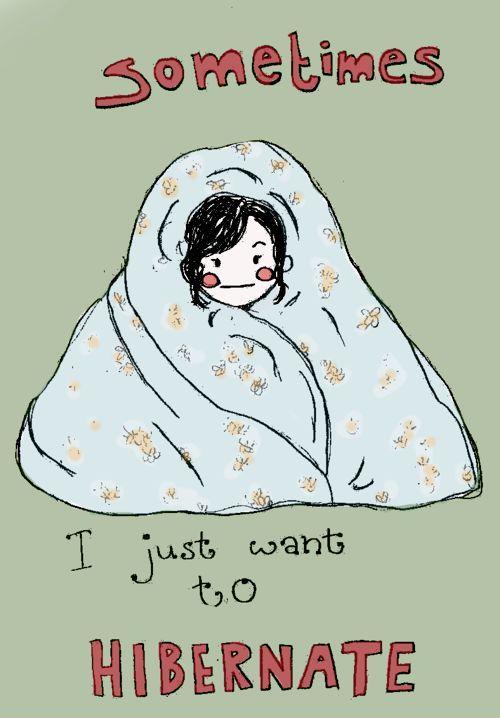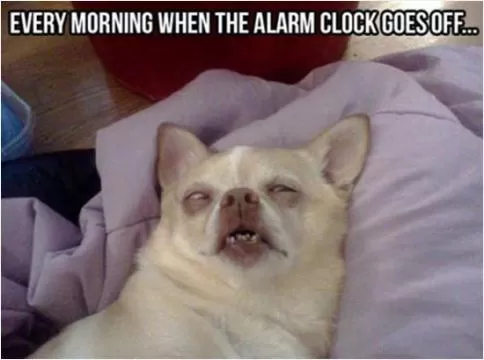Sometimes, I just want to hibernate

Sometimes, I just want to hibernate
As the sun begins to rise and the world outside my window slowly comes to life, there are some mornings where all I want to do is hibernate. The thought of facing another day filled with responsibilities, deadlines, and social interactions can feel overwhelming at times. On these mornings, the idea of curling up in my warm bed and shutting out the world seems like the most appealing option.The morning can be a particularly challenging time for those who struggle with anxiety or depression. The pressure to start the day off on the right foot, to be productive and engaged, can feel like a heavy weight on our shoulders. The thought of facing the day ahead can be exhausting, and the idea of retreating into our own little cocoon can be a comforting thought.
Hibernation, in the context of morning, represents a desire to escape from the demands of the outside world and retreat into a space of comfort and safety. It is a way of taking a break from the chaos and noise of everyday life, a way of giving ourselves permission to rest and recharge.
But hibernation is not always a healthy coping mechanism. While it is important to listen to our bodies and minds and give ourselves the space we need to recharge, it is also important to recognize when hibernation becomes avoidance. Avoiding responsibilities and social interactions can lead to feelings of isolation and loneliness, and can exacerbate feelings of anxiety and depression.
Instead of hibernating, it is important to find healthy ways to cope with the challenges of the morning. This could mean starting the day with a calming meditation or yoga practice, going for a walk in nature, or reaching out to a friend or therapist for support. Finding ways to connect with ourselves and others, even when it feels difficult, can help us navigate the challenges of the morning and face the day with a sense of resilience and strength.












 Friendship Quotes
Friendship Quotes Love Quotes
Love Quotes Life Quotes
Life Quotes Funny Quotes
Funny Quotes Motivational Quotes
Motivational Quotes Inspirational Quotes
Inspirational Quotes